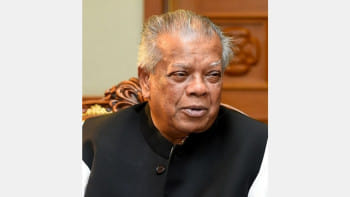The Beauty and The Beast of Our Times

I
I miss the kids. I miss their sight and sound.
I miss the kids cooking up a story when they try to enter late. I can tell by looking at their faces, they're a better storyteller than I am.
I miss the kids talking behind my back. I miss them talking among themselves even when I'm trying to talk to them.
I miss the kids staring at their mobile phones. I even miss them fiddling with their mobile phones. They know that's "the" thing that irritates me. And yet, they can't stay away from a screen.
I miss the kids in the corridors. I miss their chirping.
I miss the kids in an exam hall. I miss them eyeing the room at all degrees, in three-dimensions.
II
I miss the human contact. I miss the kids coming to me in person. I miss them sharing their dreams and telling me in excitement what they've achieved in life. I miss them asking me about career options.
I miss the kids sharing their anxieties. I very much miss them telling me about their depression. I cherish that some of them share their intimate thoughts, which they may not share with a professional psychiatrist. This trust and faith they bestow on me is the beauty of the teaching profession, when the kids see you not only as a teacher but also as a guide and a friend.
III
Nobody could have predicted the 2020 pandemic. Like all previous pandemics, it caught everyone by surprise. But life has to move on. Changing and adapting with times and adversities is a challenge. And it's an even bigger training in life.
I completed 25 years of teaching in July this year. I belong to a generation where teachers taught on blackboards in the style of "chalk and talk". I started teaching in the same manner. I always felt, something that has stood the test of time shouldn't be changed.
The blackboards were replaced by whiteboards around 2000. The chalk was replaced with markers. Then came the overhead projectors. I did learn the new technologies, but I didn't change. I was trained to see teaching as an experience — a discussion or dialogue between two parties, which is probably much better expressed verbally. "Chalk and talk" did it better than anything else.
IV
Education institutes couldn't remain closed indefinitely. Classes had to start. But this time, "chalk and talk" entered a virtual reality. I started asking myself, "Is this the real life? [or] Is this just fantasy? Am I a bohemian singing a rhapsody?"
There's always more than what meets the eye when changes take place. We go through an uncertainty of trial and error. I took time to adapt. I've been trained to observe first and then learn. Thus I took time to learn.
I called one of my students who is now a university teacher. I asked him to educate me. I was amazed at how technology has progressed.
I'm old school. I'm not comfortable watching YouTube tutorials. Monir, my student-turned-teacher, asked me to come on Zoom. He gave me tutorials on Zoom and Google Meet platforms. The only question I asked: do these platforms have a whiteboard? "Yes, they do, sir" was Monir's response. I learned the whiteboards of Zoom and Microsoft and the jamboard of Google Meet. That was one side of the story. The next was an agony I didn't foresee.
Yes, it's possible to save what I write on whiteboards, go back to them and then send the saved images back to the kids, but I couldn't escape from preparing Microsoft Powerpoint slides. You have to write such that the kids do read the text. Or else, the slides "become" their text. This makes learning shallow.
Then comes recording lectures, saving written materials in PDF, and sending them to numerous platforms for future consumption. But the real challenge is when I talk in the virtual world. I know I'm connecting with everybody from my living space. But I feel like I'm talking to myself most of the time. That human touch is what I miss.
This isn't a real life. This isn't even a fantasy.
V
Nothing is permanent in life. Online teaching will come to an end. Things will get back to normal. However, every experience teaches a lesson. And tougher experiences teach better lessons.
In the midst of all the beasts of online teaching, there is one beauty. The whiteboards. I can write on a touch screen, go back to previous screens, save and share. But most of all, the human contact of a time-tested "chalk and talk" will be back.
That world, even if it's a fantasy, has always been real for me.
Asrar Chowdhury teaches Economics in classrooms. Outside, he watches Test cricket, plays the flute and listens to music and radio podcasts. Email: asrarul@juniv.edu or asrarul@gmail.com


 For all latest news, follow The Daily Star's Google News channel.
For all latest news, follow The Daily Star's Google News channel. 



Comments